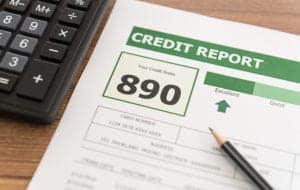Every business should use accounting software, but what if you’re on a tight budget? The good news is that you don’t have to pay a high monthly fee to track your income and keep your business and personal expenses separate. In fact, you may not have to pay anything at all for the best accounting software.

If you are required to file a tax return, you must report all income. Even if you didn’t receive a Form 1099-K in the past, you should have reported the taxable income you received through Venmo, PayPal, and other cash app transactions on your tax return. The new rules under the American Rescue Plan simply make sure that this income is reported. For tax year 2024, if you receive over $600 in income through these sources, you will receive a Form 1099-K and a duplicate form will also be sent to the IRS.

If you are self-employed, you are still responsible for paying taxes. However, your taxes won’t be automatically deducted every time a client pays you.
Instead, you will be required to file additional forms with your annual tax return and pay any taxes owed. In some cases, you may be required to estimate your tax liability and pay taxes every quarter.

Filing small business taxes for the first time can be intimidating. But with careful preparation, you can save time, reduce stress, and potentially save money by lowering your tax liability.

When applying for a loan, a potential lender is going to consider both your credit report and credit score, so it’s extremely important that you know your credit report and score beforehand.

It’s worth noting one more key difference between credit reports and credit scores. Credit bureaus are legally obligated to give you a free credit report once a year, whereas there is no law requiring them to provide a credit score. This means you’ll have to pay a fee to access your credit score through one of the “big three.”

Small business taxes may include federal and state income taxes, payroll taxes, excise taxes, and self-employment taxes. Tax funds are then used by federal, state, and local governments to pay for programs such as Medicare and Medicaid, Social Security, and public schools.

Depreciation is a method of writing off an expense over a period of years rather than all at once with a typical tax deduction. Depreciation is used for purchases and expenses that are considered long-term assets, meaning their usefulness lasts longer than one year.

By knowing the basics of what tax deductions are and how tax deductions operate, you’ll be able to understand how to lower your overall taxable income and take the deductions you’re eligible for with confidence this tax season.

A tax credit is an amount of money taxpayers can claim to decrease the amount owed on taxes. Tax credits affect the total a taxpayer or business owes at the end of their tax calculations by allowing you to reduce the amount of money owed, or even in some cases, increase the amount received in a tax refund.











